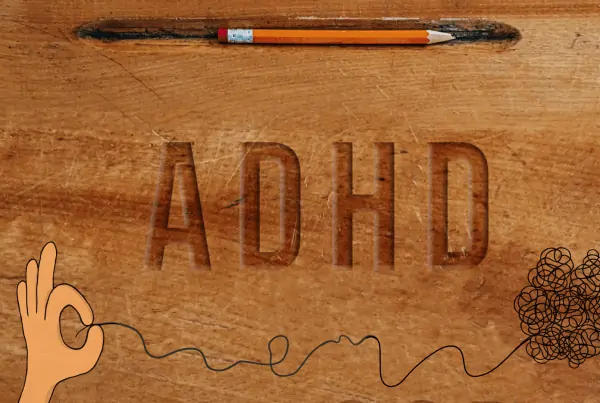Attention deficit hyperactivity disorder (ADHD) can be a bane to many a teen’s academic ambitions, especially when lacking the tools and support in learning how to study with ADHD. Studies show that children and teens with ADHD have a harder time retaining information, reading, and studying as effectively as their peers.
But that doesn’t mean it’s impossible for your teen to build good study habits, or that they’re always going to struggle with executive functioning. Treating a mental health disorder such as ADHD through family support, medication, and strong coping habits can help your teen set themselves up for success in spite of their diagnosis and utilize their strengths to navigate their school workload.
Let’s take a look at a few different ways to approach studying with ADHD, and how you can help your teen retain information more effectively.
1. Take Frequent Breaks
The first and simplest tip is to break up study sessions into multiple smaller incremental bursts of focus, rather than a single long session. Chances are that your teen has the capabilities to do their homework and work on their lesson plan. But doing everything all at once is not just overwhelming, but often impossible without interference through minor and major distractions.
Instead of an hour at a time, plan 15- to 20-minute burst sessions, with interspersed breaks of about five minutes each. Breaktime can be used to grab a snack, listen to some music, or get up and stretch their legs.
Breaking down the monotony of a single task by approaching it in smaller bursts is a simple yet effective way to make bigger endeavors less overwhelming.
2. Pick an Ideal Study Time
There are always going to be periods of the day where your teen has a much easier time retaining information and focusing on the task at hand, usually around the time they’re directed to take their medication. It is a good idea for your teen to plan their study sessions around their medication schedule.
If your teen has been diagnosed with ADHD severe enough to impact their day-to-day life, concentration, and executive functioning, chances are that they’ve also been prescribed medication.
ADHD medication can be a lifesaver when it comes to creating structure and order, but it does wear off later in the day, so consider helping your teen schedule their studying around the early afternoon or in the mornings on weekends.
3. Utilize White Noise
White noise can help reduce the amount of “interference” coming from your teen’s own thoughts while they study.
There’s a difference between white noise and music. While some genres of music can help teens with ADHD focus, a safer bet is something like a loud fan or a white noise track.
That being said, your teen might already have their own favorite focus or study playlist in mind. It’s a tenuous balance – some types of music can help improve a teen’s focus, while others can be easily distracting. Good choices usually involve medium tempo, simple repeating rhythms, and no vocals. Certain music platforms specialize in providing beats specifically for focus.
4. Find the Right Space
The right physical location is also important for forming good study behaviors. Habits matter, which means patterns matter. And since we’re dealing with ADHD, distractions need to be minimal.
Common qualifications for a good space include one your teen doesn’t spend any time on for any other reason (i.e., not the bed, living room, or even their computer), and something with no visual distractions (i.e., no home décor or windows in sight).
Sitting at the kitchen table facing a wall is a common suggestion. While boring, the idea is to keep your teen’s mind focused on the material at hand rather than their surroundings, and to ensure that they get used to getting into “study mode” whenever they sit down at their designated work station.
5. Use the Right Study Technique
There are different ways to learn and retain information. Not all of them work as well as others. And some work better with certain individuals than they do with others. Here are a few tips to keep in mind:
Rewriting can help. Put your teen to task by reading a chapter or lesson in a textbook, and then summarizing key information on a notepad or piece of paper. Challenge them to provide a bullet list of important facts to remember, as well as a short paragraph or two on the general contents of the lesson.
Rereading is common, but not as helpful as putting one’s knowledge to the test. Flashcards are a quick and easy way to test and retest your teen’s memory retention, and ability to retain key information from a lesson. Teens with ADHD generally have a harder time retaining information just through reading – it’s much easier for them to retain facts if they’re quizzing themselves instead of just going over the same lists and texts again and again.
6. Avoid Cramming
Last-minute cramming is a common problem with kids with ADHD and many other students as well. And it never really works well. While you can coast on good memory skills throughout high school if you cram before a test, it’s much harder to apply that technique while struggling with ADHD.
Dispersing study sessions throughout the week, revisiting a lesson at least twice (i.e., gaining familiarity with the information), and reviewing the information you’ve already learned the night before a test through a quiz or flashcards is a much better way of structuring a study plan.
7. Avoid Sleeping Aids
If your teen struggles with sleep, then they may be taking melatonin or other sleeping aids.
Work with your teen and their health professional to develop alternative sleeping methods to improve sleep and address restlessness, to reduce their reliance on sleeping aids through improved sleep hygiene, eating schedules, screentime before bed, and a healthy sleeping ritual.
Sleeping aids can interfere with the brain’s ability to retain information over time and cut into their study efforts.
8. If You Can’t Study, Get Moving
Physical exercise can help counteract some of the symptoms of ADHD and help improve both memory retention and study habits.
If your teen can’t focus on the task at hand, make sure they let you know they want to tap out so they can go do something physical instead. They might have an easier time focusing on their studies after a brisk walk, a short run, or a training session.
Good Study Habits, Better Focus
Dealing with ADHD is not exclusively a child or teen issue, and problems surrounding memory and executive functioning can persist into adulthood. But good study habits can help form the basis for better focus later in life, as well.
If your child has ADHD, reach out to us for help and to get an evaluation.








